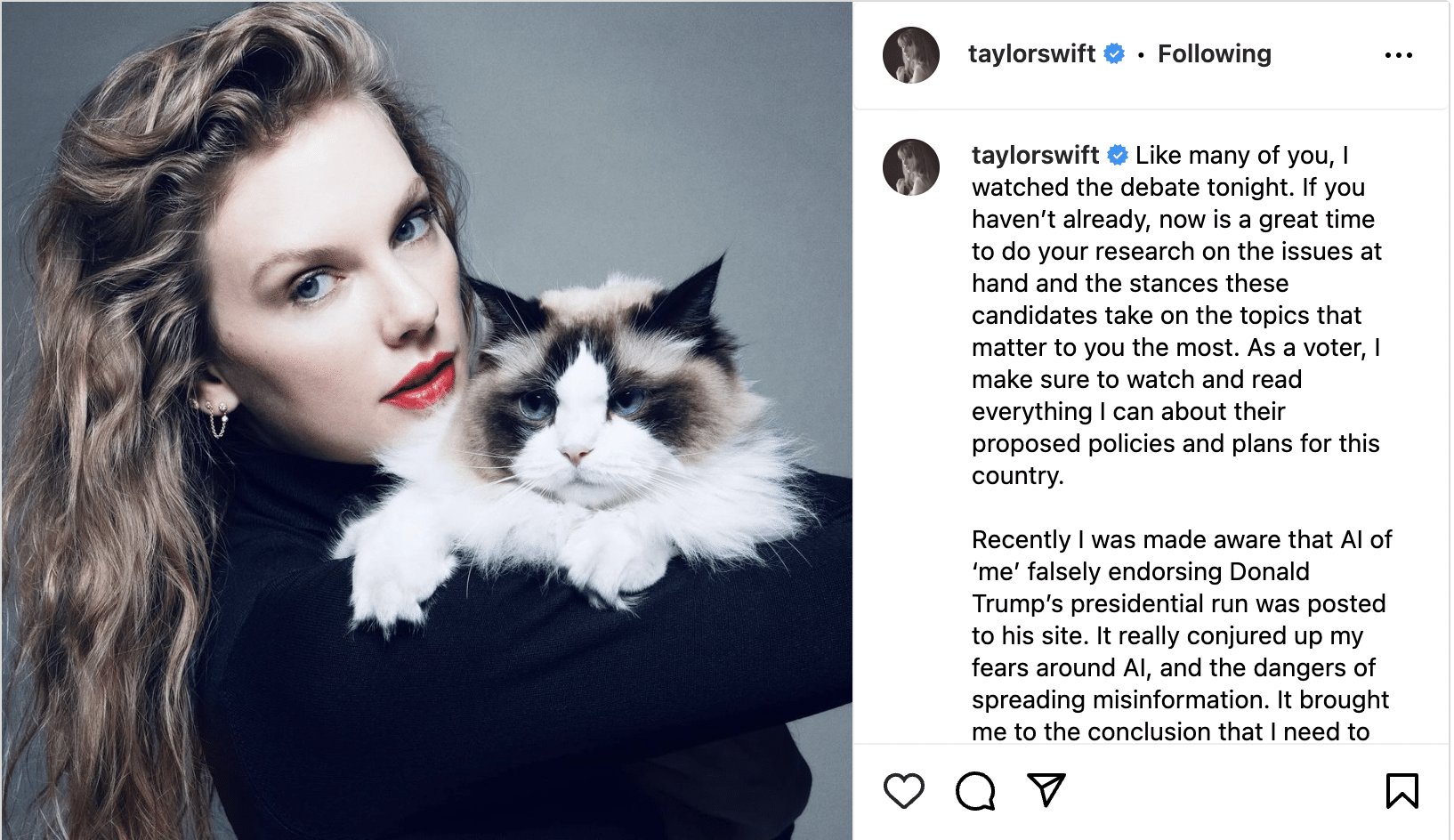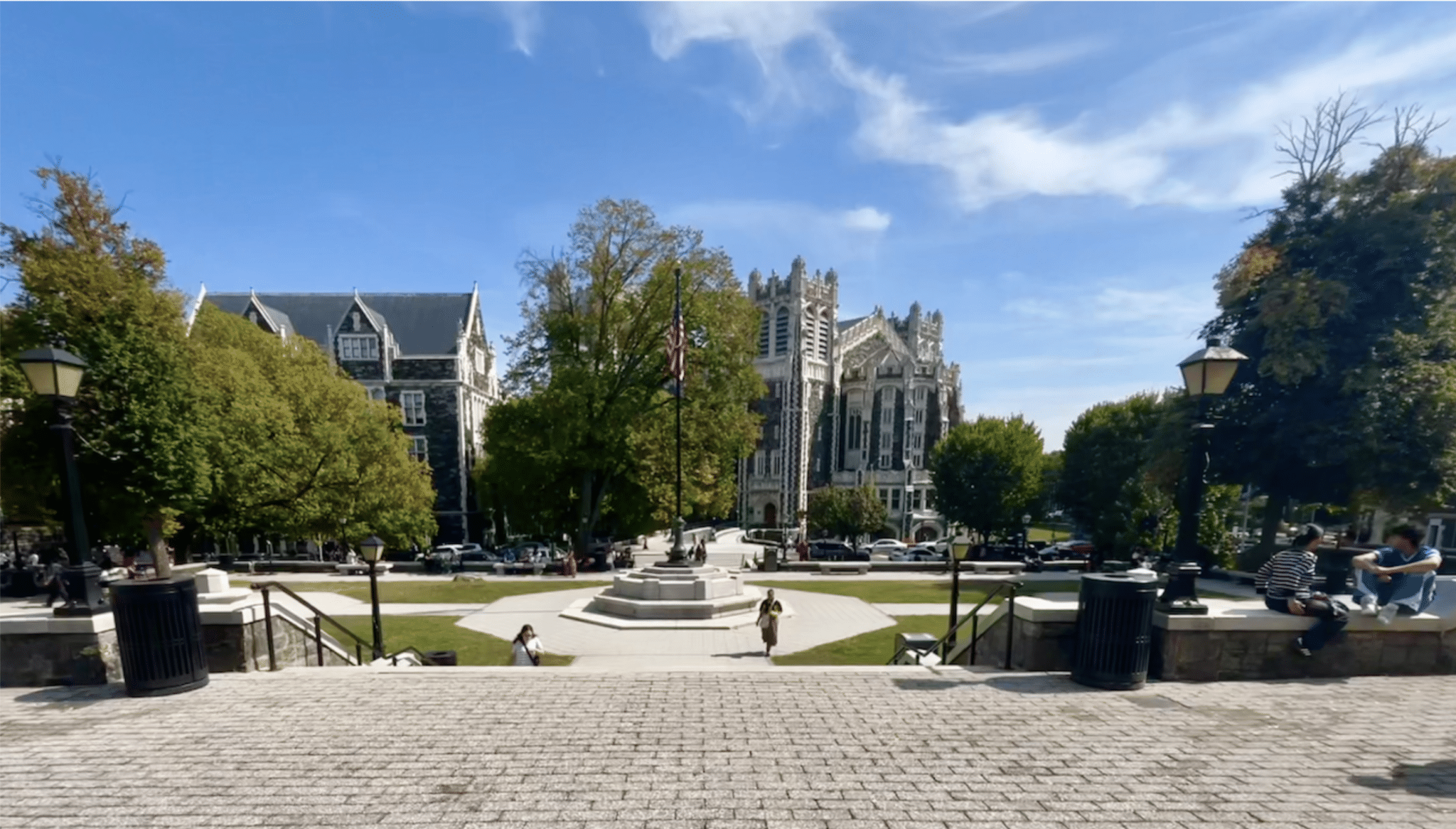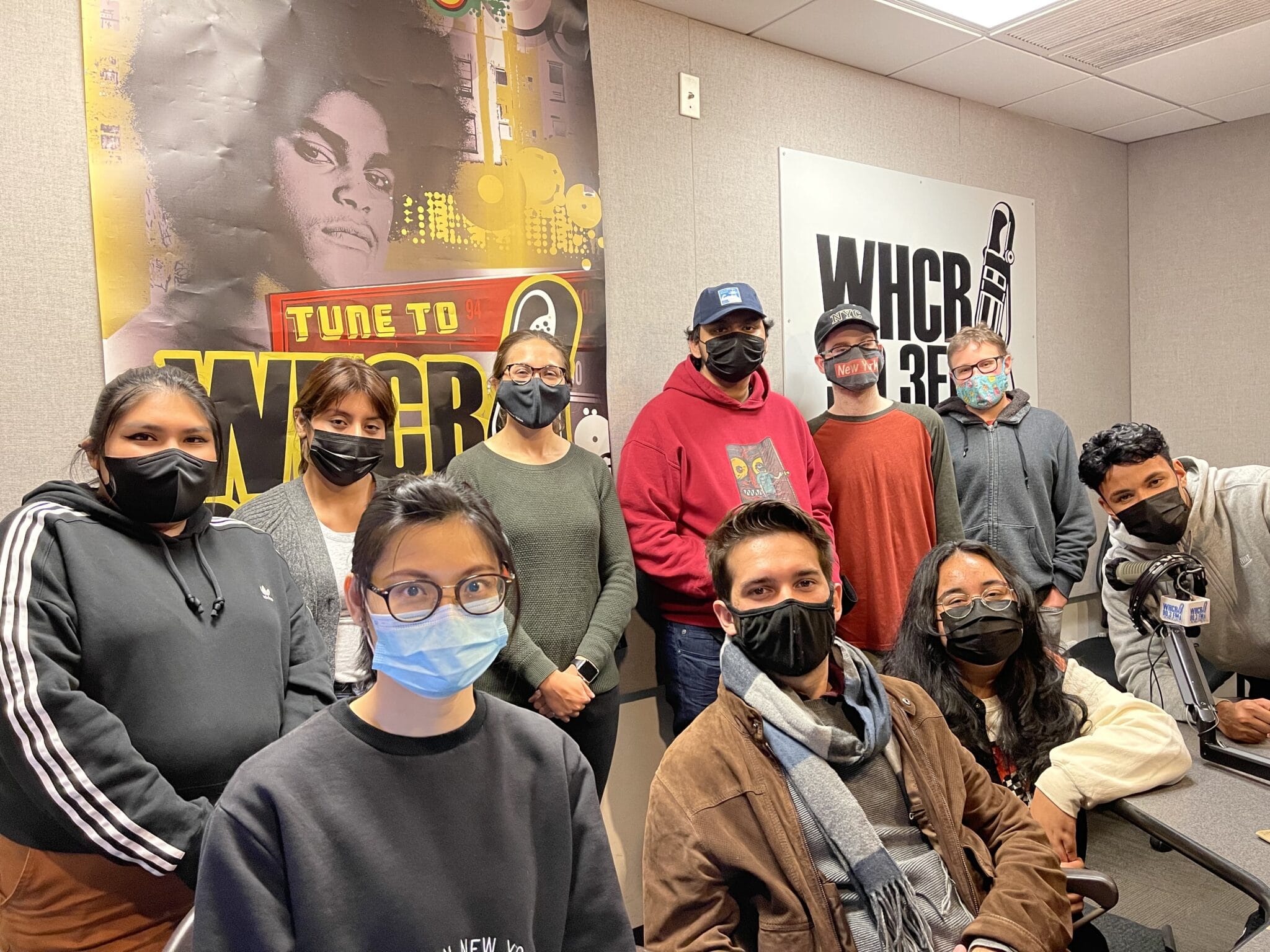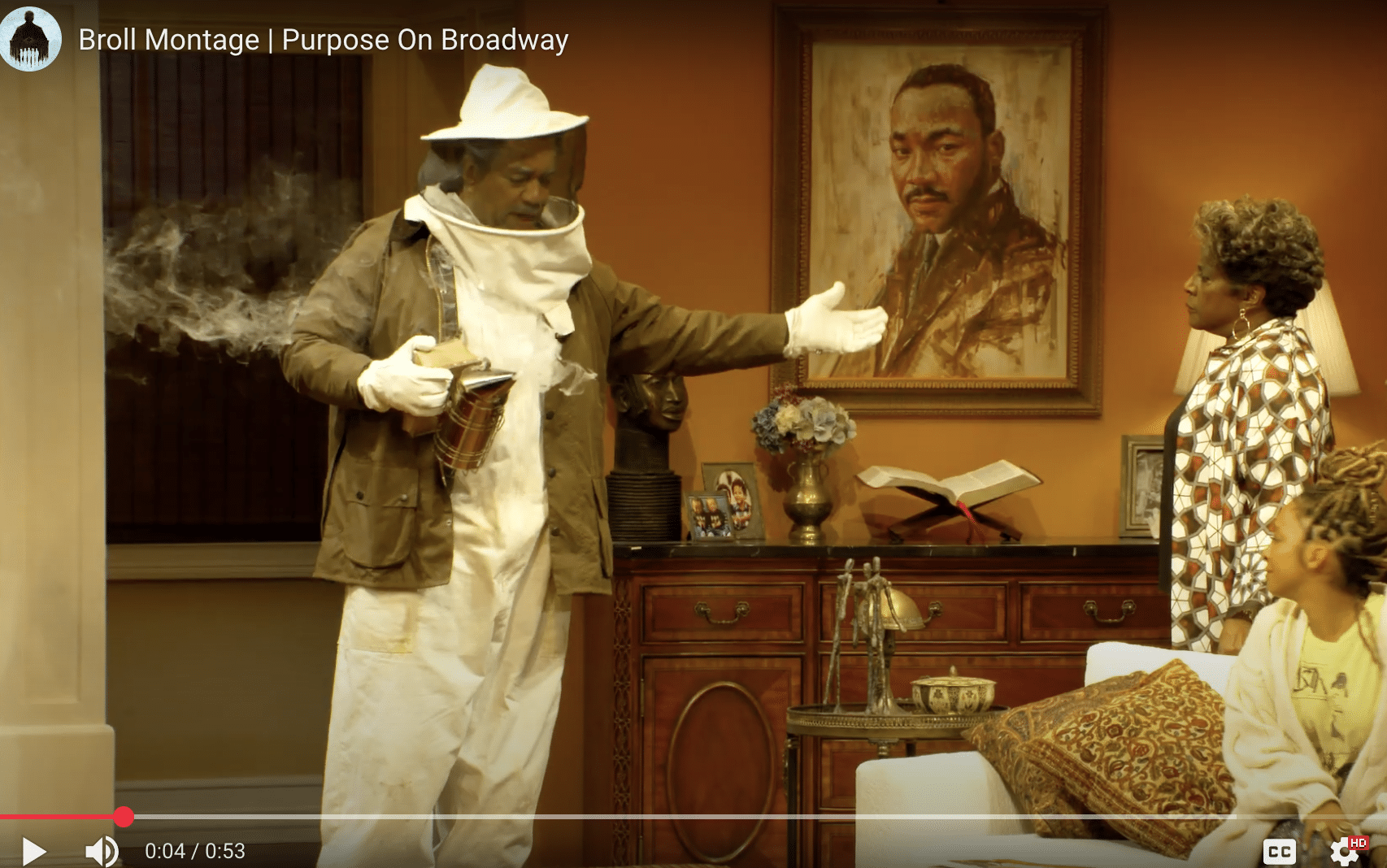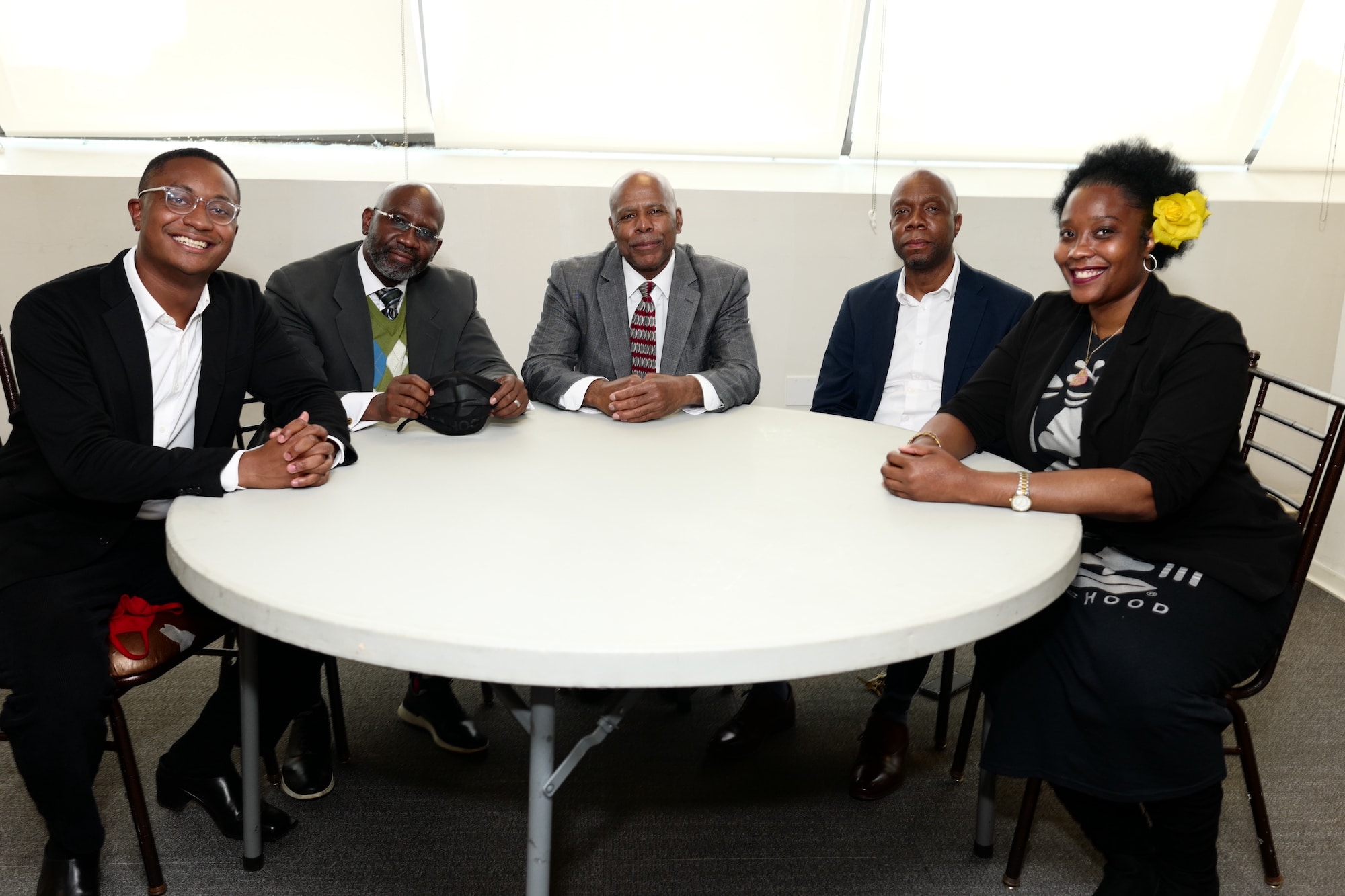Taylor Swift's September 10th endorsement of VP Kamala Harris on instagram. Photo by Susannah Pittman.
Deijah Christlieb, a digital design major at City College, says recent pop culture events didn’t sway her vote in the presidential election. She acknowledges the undeniable power of influencers in this election on platforms like Kamala HQ on TikTok and Trump voter ads on X and their ability to spark conversations, especially among young people. But she insists that she wasn’t moved by the celebrity-driven campaigns that flooded social media with endorsements and viral campaigns. “I think it’s great that celebrities and candidates used their voices for something as important as elections. Too many influencers don’t do anything with their platform, so when people use it for good, I’ll take it,” Christlieb explains. “But my decision was based on more personal factors.”
An August 2024 Harvard study found that celebrities can significantly impact elections, particularly among younger voters like Christlieb and her peers. Younger voters tend to trust celebrities more than traditional media or political leaders. Taylor Swift’s Instagram endorsement of VP Kamala Harris — infamously signed “Childless Cat Lady”— prompted her fans to rush to polls.
Kylie Jenner’s post of a non-partisan voter registration tool prompted an 80 percent increase in users compared to the previous day, according to that same Harvard report. Despite concerns about backlash or “cancel culture,” many celebrities view their political activism as beneficial for both their image and civic engagement. The study underscores the importance of authenticity in mobilizing young voters.
Celebrities who authentically speak out on issues can inspire greater participation at the polls. For instance, Aubrey Plaza sparked voter engagement at a press conference when she condemned a racist comment made about Puerto Rico at a Trump rally in Madison Square Garden shortly before the election, stating, “Thankfully my sweet Abuelita wasn’t here to hear that disgusting remark.”
As this trend grows, the influence of celebrities on elections is becoming harder to ignore. Christlieb’s skepticism, however, reflects a larger debate about the true impact of celebrity endorsements and social media on voters’ decisions. The key question isn’t whether celebrity endorsements and the use of social media advertisements are generally right or wrong. Rather, the question is: do they have the ability to sway people’s minds and votes?
Ashley Chesser, an English major at CCNY, argues that platforms such as X appeared to be marketing her vote rather than earning it. “Even after clicking not interested on the Pro Trump advertisements on X, they continued to push their advances onto me further,” she says.
Chesser was more annoyed than moved: “I don’t think social media should have such a big impact on campaign styles due to the obvious bias of certain platforms/mediums that offer little to no challenging viewpoints.”
Roxanna Cardenas Colmenares also believes that the ads she saw on YouTube and Instagram didn’t influence her feelings about the election in any way. In fact, she doesn’t believe most of the endorsements that cropped up on her feeds. “I tend to mostly base my political opinions on their actions and speeches,” says Colmenares, another CCNY English major. “I feel like it feels fake. I think the candidates should spend more resources reaching voters in a more authentic way.”
Rather than endorsements, XW Carter, a mathematics major at CCNY, would like facts and evidence to help in election-decision making. “It’s all about the candidates having to be clearer with their policies,” Carter states. “It feels like half the names on the ballot yielded nothing when I tried to search them online.”
Experts suggest that pop culture’s impact on voting isn’t about changing minds, but reinforcing existing beliefs. The Harvard study also found that young voters, who often distrust traditional media and political institutions, turn to celebrities for credibility. As the study explains, “Right now, young voters have relatively low levels of trust in a lot of leaders and institutions, including traditional news media—but celebrities are often a rare exception.”
Carter agrees. She sees the new movement of elections influenced by pop culture as a moment of reinforcement in a voter’s sense of self. “Social media’s role in my decision was less about informing my vote but more about reinforcing my beliefs and making me feel secure in my vote,” Carter says. “There are many topics I care about, and through that lens, my voting decision was clear cut.”
Tags: Ashley Chesser Aubrey Plaza celebrities celebrity endorsements Deijah Christlieb Donald Trump Instagram Joseph Nunez Kamala Harris Kylie Jenner Madison Square Garden Public opinion Roxanna Cardenas Colmenares Social Media Taylor Swift XW Carter
